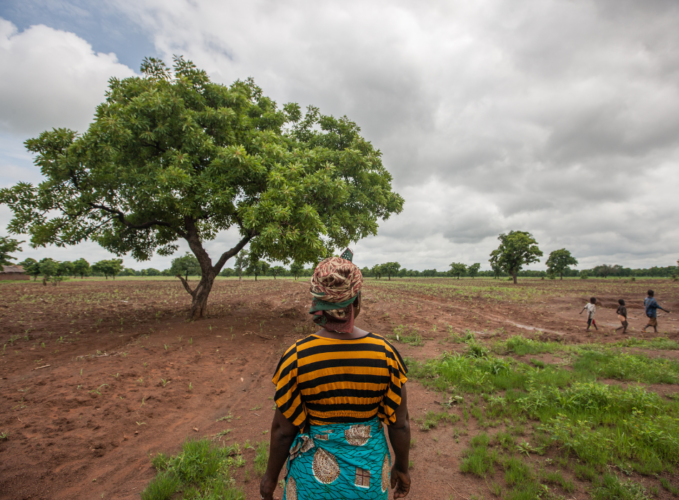Addressing climate change and biodiversity loss in rural Africa through high-impact radio programs.
Climate change and biodiversity loss are two of the most defining environmental crises that challenge the world today. Nature-based solutions for climate change adaptation have evolved as an innovative yet essential tool to address this challenge. They merge Indigenous viewpoints and ecosystem-based solutions to tackle climate adaptation efforts. If appropriately implemented, these solutions can expedite progression towards a low-carbon, equitable, gender-inclusive, greener and positive future.
Farm Radio International will work with 200 radio stations across Africa to share stories of rural communities adapting to climate change by partnering with nature. In six countries, On Air Dialogues with rural communities will be hosted by 20 radio stations to learn local priorities about, ideas for, and experiences with, harnessing nature to adapt to a changing climate. Based on the results, more than 200 entertaining radio documentaries will be produced that showcase local nature-based solutions, and high-impact interactive radio programs will support rural Africans in bringing nature-based solutions to their communities. The best ideas that emerge from these programs will be spread Africa-wide through scripts and stories shared with a network of over 3,500 broadcasters in 38 countries. These also aim to create an environment where women and youth have an increased role in conversations about the climate — and that decision and policymakers are paying attention to the voices of those women and youth.
Carleton University’s School of Journalism and Communication will support this project and its Canadian engagement component. Students will contribute to producing podcasts that educate Canadians on the climate solutions coming from African communities and how Canada can support them.
Gender equality
The project is anchored in Farm Radio’s approach to gender equality and inclusion. With aims to be gender transformative, the project will shift inequitable social norms at household, community and national levels, as well as the systems and structure that (re)produce them. This project will help leaders and decisions of all levels understand and prioritize local communities’ distinct adaptation needs and strategic priorities, with a specific emphasis on women and youth — and boost their contributions and leadership in nature-based solutions. It will support women and youth in decision-making and ensure their knowledge is valued.
Specifically, we will ensure that women’s rights and youth organizations (formal and informal) are continuously consulted and bring the perspectives and voices of women, youth and those experiencing other marginalizations to our strategies and design. At higher levels, these organizations will bring perspectives and voices of women and youth to our communication strategy and makeup parts of national and global advisory panels. Through our On Air Dialogues, we will look to amplify the perspectives and solutions that come from rural communities, especially from women and youth. Stations will form women-led community listening groups, which will be equipped and trained on how to contribute to programs themselves. Radio programs will be co-hosted by at least one woman and trained on how to specifically design programs that both include women’s and youth’s voices and respond to their needs.
Project goals
Ultimate outcome: Improved gender-inclusive climate-resilient communities in sub-Sarahan Africa
Intermediate outcomes:
- Enhanced enabling environment for rural community action on climate change adaptation and biodiversity using locally relevant, gender-inclusive nature-based solutions.
- Increased responsiveness by national, regional and international decision-makers to the expressed needs, wisdom, and experiences of rural communities, particularly women and youth, in adapting to climate change using gender-inclusive nature-based solutions.
- Increased Canadian engagement in using nature-based solutions for climate change mitigation and adaptation in developing countries.
For more information, click HERE.

